Baiq Nuril: The Indonesian woman jailed for sharing boss's 'harassment' calls
- Published
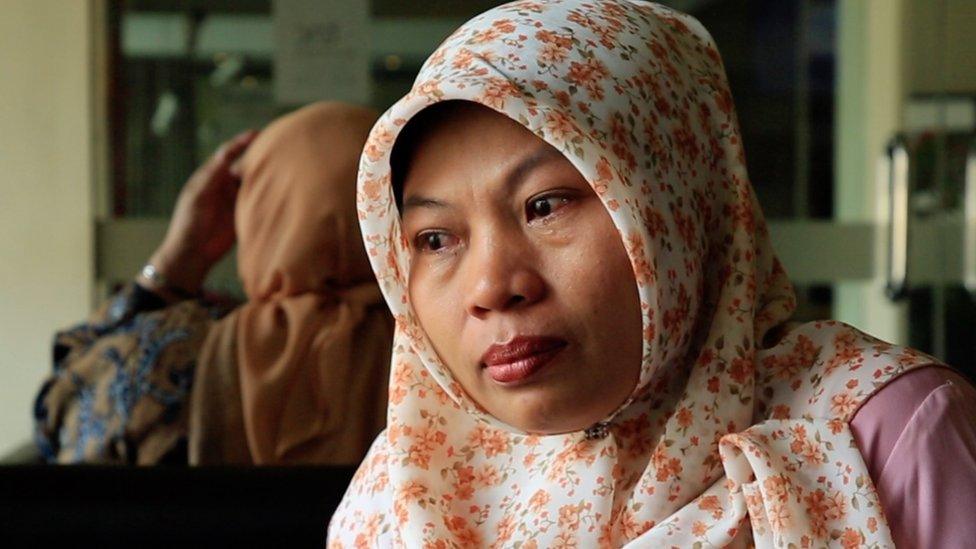
It's a case that's sparked public anger in Indonesia, even becoming an issue during the recent presidential election.
Baiq Nuril Maknun, the 41-year-old bookkeeper and mother of three, was allegedly receiving sexually-suggestive phone calls from the head teacher in the school where she worked.
So she began recording his calls. Her lawyer said she did so for her own protection.
But Indonesia's top court ruled that the sharing of the recordings, which subsequently went viral on social media, amounted to the distribution of indecent material, violating Indonesia's Law on Information and Electronic Transactions (ITE) .
Ms Nuril says the recordings were distributed by a third party.
The Supreme Court turned down an appeal to challenge Ms Nuril's conviction last week. She currently faces six months in prison and has been ordered to pay a fine of 500 million rupiah (£28,200; $35,200).
'Highly optimistic'
But in an interview with BBC News Indonesia, Ms Nuril says she remains "highly optimistic" because of the widespread support she has received, including from government officials and human rights defenders.
She now pins her hopes on Indonesian President Joko Widodo granting her amnesty, something which is in his power but is rare.
It's a controversial case that activists say highlights the country's weak protection for women and puts the legal system handling of sexual harassment cases under scrutiny.
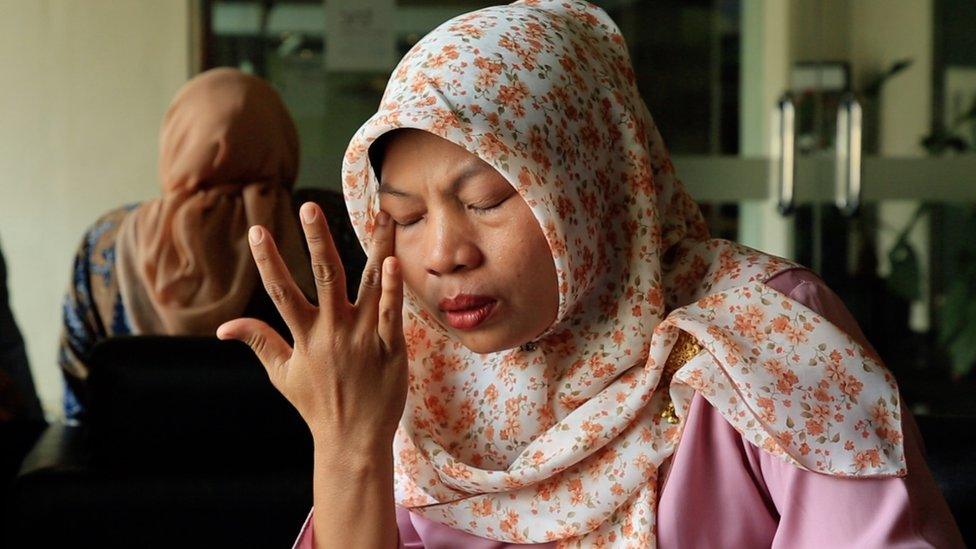
Baiq Nuril broke down in tears several times during the interview.
The emotional toll the case is having on Ms Nuril and her family is clear. Her eyes fill with tears while answering our questions.
"I didn't know what to say to my youngest child, because they couldn't visit me at first," she recalls about being detained at the police station in 2017.
She says her kids initially believed she was going for "driving lessons" when she was arrested by police.
"I covered the uniform I was made to wear with a big veil, but my children could still see it and would ask me 'Mum, why do you look like one of those criminals on television?'"
Ms Nuril says it breaks her heart to show her children that she is "struggling to survive".
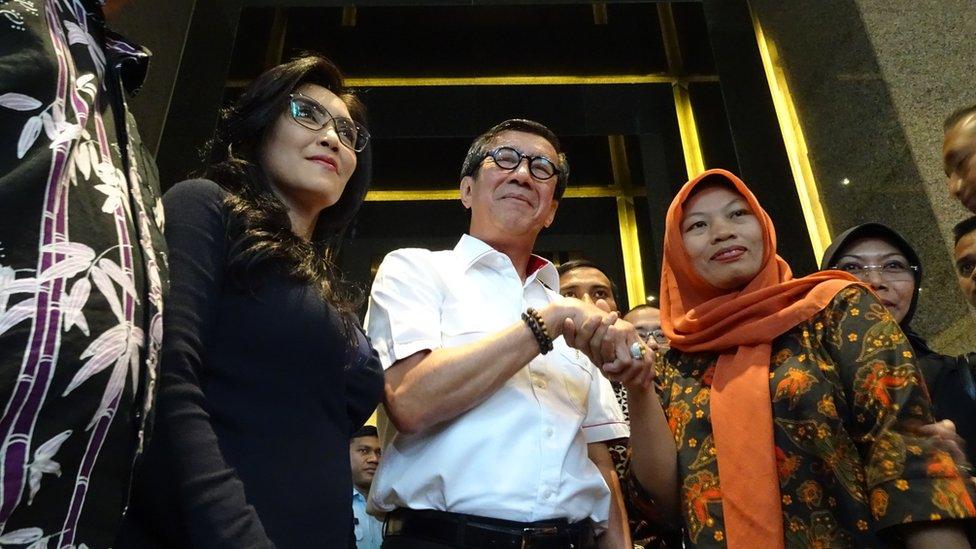
Ms Nuril with Indonesian politician Rieke Diah Pitaloka and Yasonna Hamonangan Laoly, Minister of Law and Human Rights of Indonesia.
Its the huge outpouring of support from the wider community, including from her three children, is what's given her the strength to continue fighting she says.
The Supreme Court ruling has received widespread criticism.
A letter signed by nine groups including the Bangkok-based Asian Forum for Human Rights and Development and Jakarta-based Indonesian Legal Aid Foundation, said the ruling would only "perpetuate the culture of victim-blaming".
But Supreme Court spokesman Abdullah told AFP news agency, "Her judicial review was rejected because her crime has been legally and convincingly proven."
What's next?
It's now a waiting game to for Ms Nuril.
The government this week summoned legal experts to discuss the case and have presented back a letter of recommendation for clemency to Mr Widodo. There are also talks underway about reforming the ITE Law.
"I don't think about the worst case scenario," she says. "If there's no amnesty, I don't know what I will do."
"I had thought about ending my life. But then I thought who else will help my children achieve their dreams."
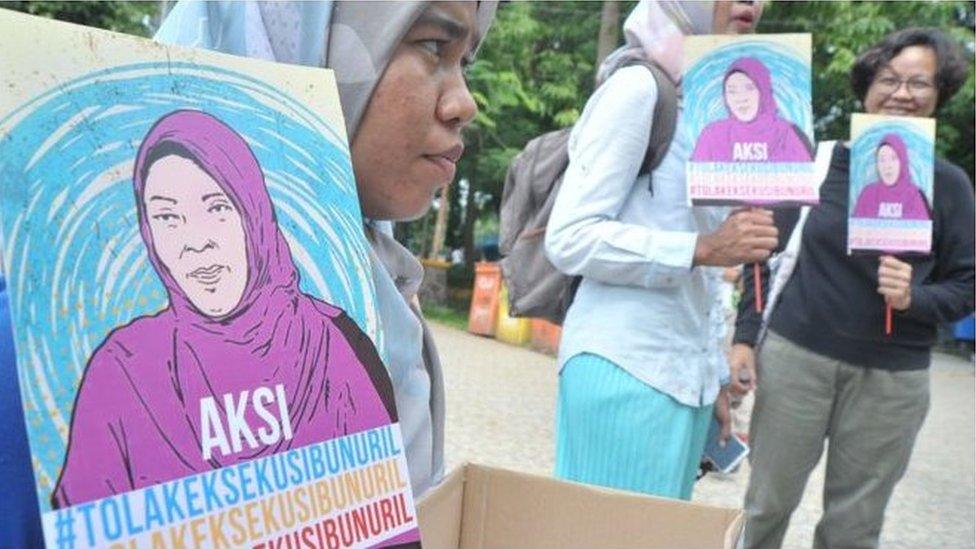
Many women have come out in solidarity with Baiq Nuril.
Encouraging other women to not be silent and to speak out about harassment is a key motivation for Ms Nuril.
One-third of Indonesian women have faced physical or sexual violence, according to a government survey released in 2017 and Indonesia's #MeToo movement was slow to gain traction.
An anti-sexual violence bill has been stuck in Parliament as it's received vocal opposition from Islamic conservatives.
The draft law defines forms of sexual violence that are not covered under existing legislation, such as sexual harassment, sexual exploitation and forced prostitution. It is designed to make the justice system more supportive of women reporting such crimes.
But conservative critics say that the draft law implies that any consensual sexual activity outside of marriage is acceptable. They are particularly concerned on the implications that this might have when it comes to homosexual relationships.
Bringing perpetrators to justice
Without stronger laws in place, human rights activists are concerned that there could be more cases like Ms Nuril's, in which alleged perpetrators aren't brought to justice.
"It's not fair as the person who verbally harassed me isn't being punished when he should be," she says.
Despite the tears, she is still defiant.
"You must be brave and report, don't be afraid to tell the truth," she calls on other women.
"There are so many principled people out there, you must fight for your rights too."
Reporting by Silvano Hajid, Oki Budh and Lara Owen
- Published26 March 2019
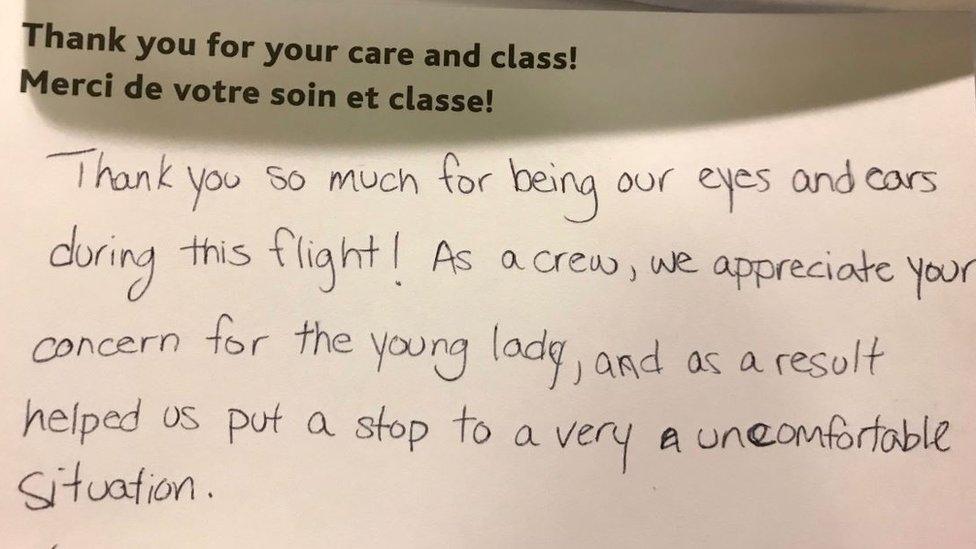
- Published25 June 2019

- Published10 July 2019
